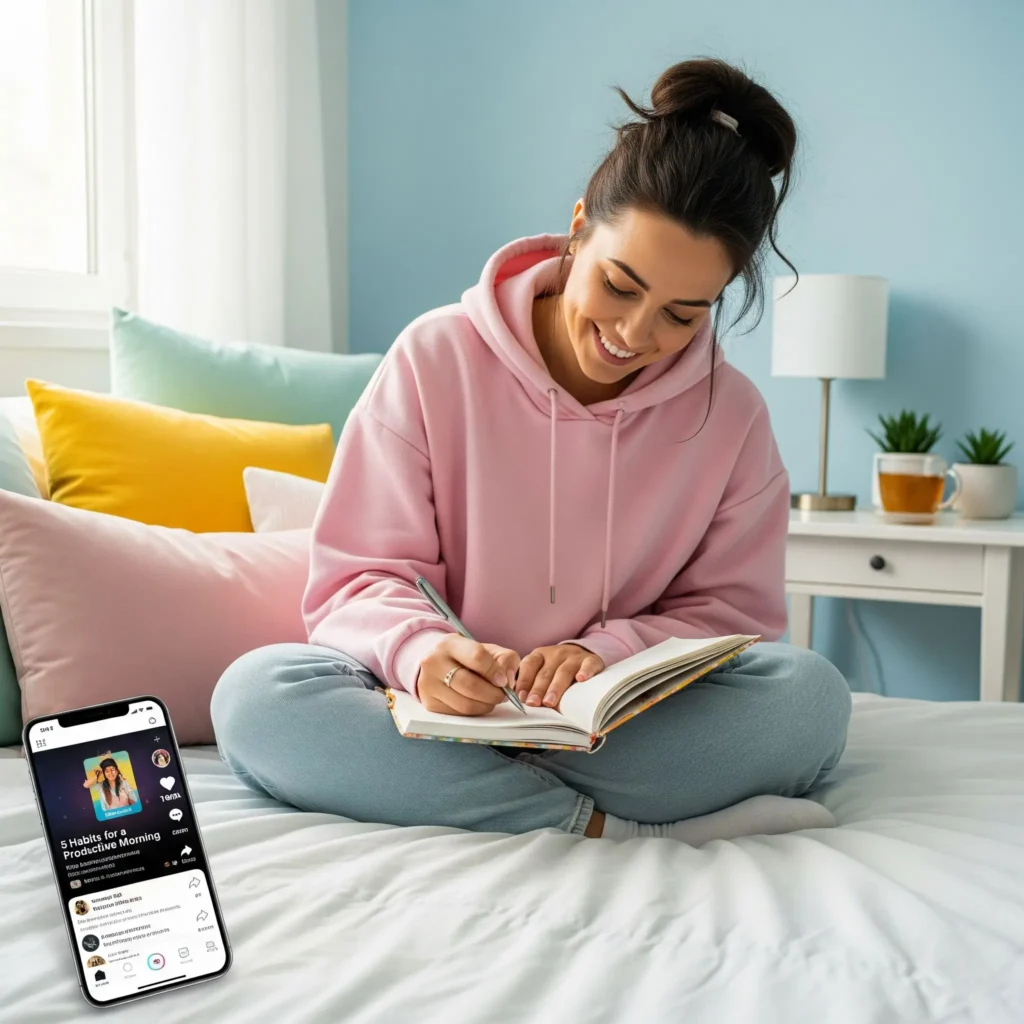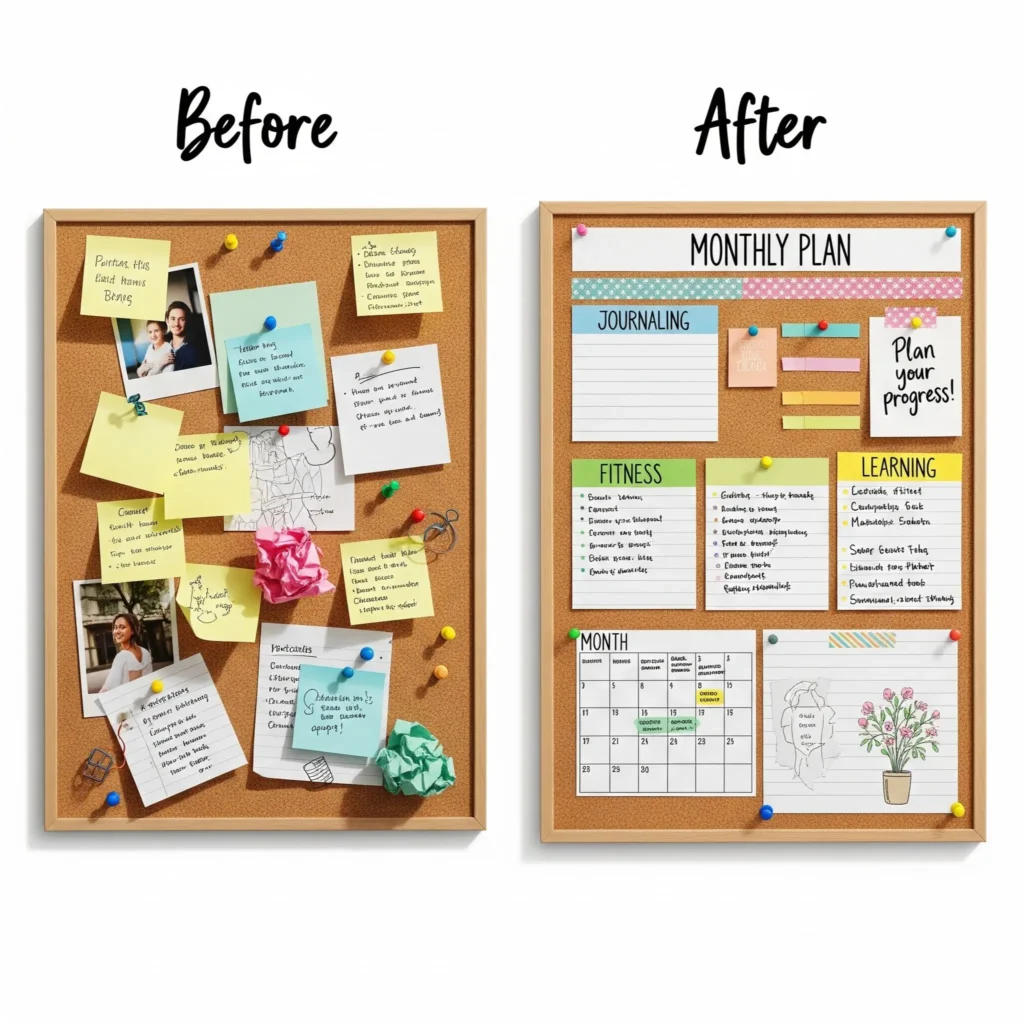Imagine stepping into a new month feeling focused, motivated, and excited for what’s ahead.
No more vague resolutions that fizzle out after a week. Instead, you wake up every morning with clarity and purpose because you have a personal roadmap for the next 30 days. That’s what monthly self-improvement curriculums promise? a structured yet flexible approach to growth that has taken TikTok by storm.
This isn’t just another social media trend. It’s a playful, practical system for breaking big goals into small, manageable actions, one month, one theme, one step at a time. If you’ve struggled with traditional New Year’s resolutions or felt overwhelmed by big life changes, this method could be your game-changer.
What Are Monthly Self-Improvement Curriculums?
If you’ve scrolled through TikTok lately, you’ve likely seen creators sharing their “monthly curriculum” videos, a trendy yet surprisingly effective approach to self-improvement. So, what exactly does it mean?
Definition
A monthly self-improvement curriculum is a structured plan for personal growth, focused on one theme per month. Unlike rigid yearly resolutions, this approach encourages small, intentional habits that fit into your real life. For example, January might be about mindfulness, February about fitness, and March about creativity. Each theme includes specific, actionable tasks like journaling, reading, or skill-building.
Why It Went Viral on TikTok
TikTok thrives on bite-sized, visually appealing content, and this trend fits perfectly. Gen Z and Millennials love systems that feel fun, personalized, and achievable. These curriculums offer instant dopamine hits as users share progress, create aesthetic trackers, and inspire each other. Its growth, gamified.
The Core Idea
- Break big, intimidating goals into bite-sized monthly challenges.
- Focus on themed months like gratitude, productivity, or health.
- Incorporate creative tools, journals, digital planners, and apps to track habits.
Why Monthly Curriculums Work (Backed by Psychology)

Before diving in, let’s understand the science behind why this system works so well.
The Science of Micro-Goals
Setting massive goals for an entire year often leads to burnout. According to behavioral psychology, micro-goals, small, time-bound targets, are more effective because they create frequent success experiences.
James Clear, author of Atomic Habits, explains that small habits compound over time. By focusing on just one theme per month, you avoid decision fatigue and increase your chances of sticking to new behaviors.
Key Takeaways:
- Monthly goals reduce overwhelm.
- Short time frames boost urgency and motivation.
- Progress feels achievable, creating a positive feedback loop.
Dopamine & Progress: Why Tracking Feels Good
Every time you complete a task on your monthly plan, your brain releases dopamine, the “feel-good” chemical associated with reward. That’s why crossing off a journal entry or finishing a chapter feels so satisfying.
Statistic to Include:
Studies show that people who set monthly goals are 42% more likely to achieve them than those who rely on vague yearly resolutions (American Psychological Association).
How to Create Your Own Monthly Self-Improvement Curriculum

Ready to try this trend yourself? Here’s a step-by-step guide to designing a curriculum that fits your lifestyle.
Step 1: Pick Your Theme for the Month
Choose one area of growth to focus on:
- Mindfulness Month: Meditation, gratitude journaling.
- Fitness Reset: Short daily workouts, healthy meals.
- Digital Detox: Reduce screen time, tech-free mornings.
- Creative Boost: Art projects, photography, or writing.
Step 2: Set 3–4 Key Activities
Your curriculum should feel clear and actionable:
- Journaling prompts: Write 5 minutes each morning.
- Reading challenge: Two books related to your theme.
- Skill challenge: Learn a new recipe or craft.
Step 3: Plan Your Weekly Milestones
Break it down into weekly targets:
| Week | Activity | Goal |
|---|---|---|
| Week 1 | Start journaling habit | 5 minutes daily |
| Week 2 | Read book 1 | 50 pages |
| Week 3 | Digital detox weekend | No social media |
| Week 4 | Reflect & plan next month | Create summary journal |
Step 4: Track Progress with Tools
Consistency is key. Use tools that make tracking fun:
- Apps: Notion, Habitica, Streaks.
- Analog: Bullet journals, printable trackers.
- TikTok boards: Share updates for accountability.
Popular Monthly Themes You Can Try

If you need inspiration, here are some examples:
- Mindful March: Meditation & journaling.
- Fitness February: 10-minute daily workout.
- No-Spend November: Budgeting & financial literacy.
- Digital Detox December : Limit screen time.
- Skill-Up September: Learn a new language or craft.
How Parents Can Use This Trend with Kids (Family Angle)
TikTok trends aren’t just for teens, families can join too!
Why It Works for Kids
- Builds discipline and responsibility.
- Encourages family bonding.
- Makes learning fun through playful challenges.
Family-Friendly Monthly Themes
- Gratitude Month: Write daily thank-you notes.
- Adventure Month: Weekly outdoor activity.
- Kindness Month: Do one kind act every day.
Extra Tips for Staying Consistent
- Use habit trackers or printable planners for visual progress.
- Pair goals with small rewards (a favorite snack, a self-care day).
- Share your progress on TikTok or Instagram for social accountability.
Monthly Self-Improvement Curriculum Ideas Table (Quick Reference)
| Month | Theme | Key Activities |
|---|---|---|
| January | Mindful Start | Journaling, meditation, gratitude lists |
| February | Fitness Focus | Daily workout, hydration challenge |
| March | Creativity Boost | Learn painting, write short stories |
| April | Digital Detox | Screen-free Sundays, social media breaks |

FAQs About Monthly Self-Improvement Curriculums
What is a monthly self-improvement curriculum?
It’s a structured 30-day plan where you focus on one personal growth theme and break it into actionable habits.
How do I stay motivated throughout the month?
Track progress daily, celebrate small wins, and choose themes you genuinely enjoy.
Are monthly curriculums better than yearly resolutions?
Yes! Monthly goals are flexible and realistic, unlike rigid yearly resolutions.
Can kids and teens do monthly self-improvement curriculums?
Absolutely! It’s a creative, family-friendly way to build lifelong habits.
Conclusion (Emotional Wrap-Up)
Your life doesn’t need an overnight transformation. One month. One theme. One habit at a time. That’s all it takes to build momentum toward your best self. Whether it’s journaling, fitness, or digital detoxing, start small, but start today.
Your first monthly self-improvement curriculum could change everything. Are you ready to take that step? ➤

